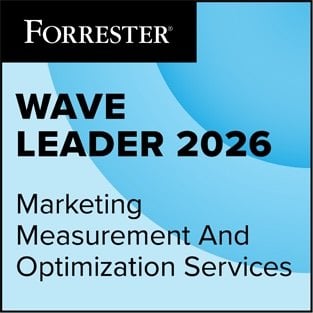What’s the most important question marketers should be asking themselves currently?
Are we focused on the right KPIs? There’s always a huge focus on marketing return on investment (MROI), and that’s natural. With large sums of money being invested in media and marketing we do need to be able to report back on what impact it has had on hard business metrics. But MROI is an efficiency metric – once a budget has been allocated, how do we best use it. There are other more important questions that relate to the effectiveness of media and marketing. Effectiveness relates to KPIs such as like-for-like sales growth and increased market share. These growth KPIs tend to be more strongly correlated with movements in stock prices, something the C-Suite will tend to focus on.
You’re head of Gain Theory’s Analytics Centre of Excellence; tell us about what this does…
ACOE is one of four centres of excellence (operations, data, and client success are the others) that are responsible for instilling best practice across our work, coaching and mentoring our people, and driving innovation. Initiatives can be company-wide, such as our decision a few years ago to move from Frequentist to Bayesian modelling, or the more recent introduction of war-gaming capabilities. Alternatively, results can be smaller in scale, such as tweaking workflows to optimize delivery for a specific client.
How are we incorporating AI into our analytics?
Whether it’s AI writing new code scripts to speed up and automate work, perform basic exploratory data tasks, or evaluate model quality, AI has become a core part of our day-to-day work. It’s also a key component of our innovative new approach to creative effectiveness – we’re using multimodal AI to analyze creative assets at scale to help marketers quantify which assets are driving sales and why.
What book would you recommend and why?
I’m a big fan of science fiction. I like to read novels that discuss what happens when common societal issues are placed in an unfamiliar context, prompting a reappraisal of the underlying problems and potential solutions. I’m also an optimist, so I love the Culture novels by the late Iain M. Banks, where advanced AI is broadly benevolent. The Player of Games is just about my favourite, though Use of Weapons pushes it close.
Away from work, you coach rugby to young kids – what do you enjoy about this?
I’d played rugby since I was about 7 years old – never to any great standard but it was something that I always enjoyed. In my mid 30s I had an eye injury that forced me to retire, so my team-mates encouraged me to help with coaching and it took off from there. Other than still being actively involved with a sport I love, the best thing about coaching is seeing how kids learn. Given the right, safe environment most are able to learn new skills very quickly.
The most impressive thing is that once they understand they have permission to fail there is hardly ever any frustration. Everyone knows what the end goal of each task looks like and if something doesn’t work, they simply try a different approach. This is something I’ve tried to bring back into my professional life. Give people space to make mistakes, make sure they learn from these mistakes and, insofar as it’s possible, make it fun.
Contact John to discuss any of the issues raised in this Q&A.
